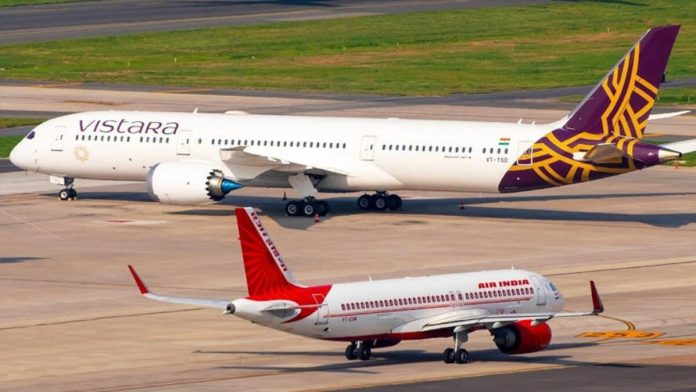
Merchant onboarding is a critical process for payment service providers (PSPs), determining how merchants are integrated into the payment system. Traditionally, this process has been manual, involving extensive paperwork, human intervention, and multiple stages of verification. However, with the advent of automation technology, many PSPs are shifting towards automated onboarding solutions. Both approaches have their unique advantages and disadvantages.
What is Manual Merchant Onboarding?
Manual merchant onboarding involves a human-driven process where each step is handled by a team of professionals. This process typically includes collecting documents, conducting due diligence, verifying compliance with regulations, and ensuring that the merchant’s business aligns with the PSP’s risk profile.
Pros of Manual Merchant Onboarding
Personalized Service
Manual onboarding offers a more personalized experience. The human touch allows for tailored customer service, addressing specific needs and questions that merchants might have during the process. This personal interaction can help build stronger relationships with merchants, which may lead to greater trust and loyalty.
Thorough Verification
Human-led processes tend to be more thorough in terms of compliance and risk assessment. This diligence can prevent potential fraud or financial risks, as experienced professionals scrutinize each application. Manual checks can sometimes catch irregularities that automated systems might overlook.
Flexibility
A manual process can adapt to unique or complex business models that don’t fit into standardized categories. Custom solutions can be devised to cater to niche markets, offering PSPs the flexibility to onboard merchants who might be turned away by automated systems due to atypical business operations.
Cons of Manual Merchant Onboarding
Time-Consuming
The most significant drawback of manual onboarding is the time it takes. Completing all the steps, from document collection to compliance checks, can be labor-intensive, often leading to delays. This slow pace can frustrate merchants eager to start accepting payments, potentially driving them to competitors with faster onboarding processes.
Higher Operational Costs
Manual processes require more staff, office resources, and time, which translates to higher operational costs. These expenses can add up, particularly for PSPs managing a large volume of merchants, making it a less cost-effective solution.
Increased Risk of Human Error
Human intervention opens the door to errors, whether it’s a missed document, incorrect data entry, or oversight in compliance checks. These errors can lead to delays, complications, or even financial losses for both the PSP and the merchant.
What is Automated Merchant Onboarding?
Automated merchant onboarding leverages technology to streamline the onboarding process. This approach uses software to handle tasks such as document verification, compliance checks, and risk assessments, significantly reducing the need for manual intervention.
Pros of Automated Merchant Onboarding
Speed and Efficiency
Automated onboarding significantly reduces the time required to onboard new merchants. With the ability to process multiple applications simultaneously and execute tasks like document verification, KYC (Know Your Customer) checks, and compliance assessments in a matter of minutes, automation streamlines the entire process.
Cost-Effective
Automation reduces the need for extensive human resources, lowering operational costs. Once the system is in place, the incremental cost of onboarding additional merchants is minimal. This scalability is particularly advantageous for PSPs looking to expand rapidly without proportionately increasing their staffing levels.
Consistency and Accuracy
Automated systems provide consistency in processing, ensuring that every application is handled uniformly. This reduces the risk of human error and ensures that all merchants go through the same rigorous checks, enhancing the overall reliability of the onboarding process.
Cons of Automated Merchant Onboarding
Limited Personalization
While automation excels in efficiency, it often lacks the personal touch that can be critical in building strong merchant relationships. Merchants with complex needs or those requiring more guidance may find automated systems lacking in responsiveness and flexibility.
Rigidity
Automated onboarding systems often follow standardized procedures that may not accommodate unique business models. Merchants who don’t fit neatly into predefined categories may struggle with the automated process, potentially leading to rejection or an inadequate onboarding experience.
Wrapping Up
Both manual and automated merchant onboarding methods come with their own set of pros and cons. Manual onboarding provides personalized service and flexibility but at the cost of time and efficiency. On the other hand, automated onboarding solutions offers speed, cost-effectiveness, and accuracy but can lack the personal touch and adaptability for complex cases. Ultimately, the choice between manual and automated onboarding should align with your business goals, the complexity of your merchant base, and your resources. Many PSPs find that a hybrid approach, combining the strengths of both methods, offers the best balance of efficiency and personalized service.

 Delhi, 30th August 2024: In a significant move towards advocating traffic safety awareness, Honda Motorcycle and Scooter India (HMSI) today held a pivotal Road Safety Convention in Delhi. This event, a key initiative of HMSI’s ongoing project – Mindset Development for Our Future Generation, underscores the company’s dedication to cultivate road safety consciousness from an early age.
Delhi, 30th August 2024: In a significant move towards advocating traffic safety awareness, Honda Motorcycle and Scooter India (HMSI) today held a pivotal Road Safety Convention in Delhi. This event, a key initiative of HMSI’s ongoing project – Mindset Development for Our Future Generation, underscores the company’s dedication to cultivate road safety consciousness from an early age.
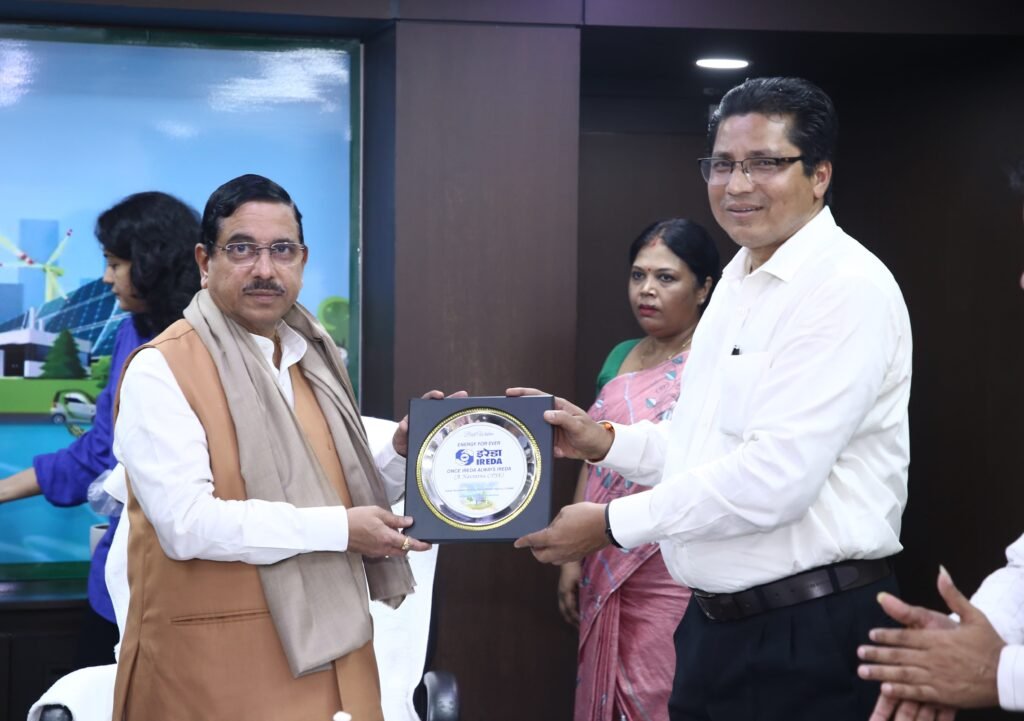 Mumbai, 30th August 2024: Shri Pralhad Joshi, the Hon’ble Union Minister of New and Renewable Energy, Consumer Affairs, Food and Public Distribution, visited the Registered Office of Indian Renewable Energy Development Agency Limited (IREDA) at India Habitat Centre, New Delhi, today. During his visit, the Minister reviewed IREDA’s performance and strategic roadmap for the future, followed by an interactive session with senior officials.
Mumbai, 30th August 2024: Shri Pralhad Joshi, the Hon’ble Union Minister of New and Renewable Energy, Consumer Affairs, Food and Public Distribution, visited the Registered Office of Indian Renewable Energy Development Agency Limited (IREDA) at India Habitat Centre, New Delhi, today. During his visit, the Minister reviewed IREDA’s performance and strategic roadmap for the future, followed by an interactive session with senior officials.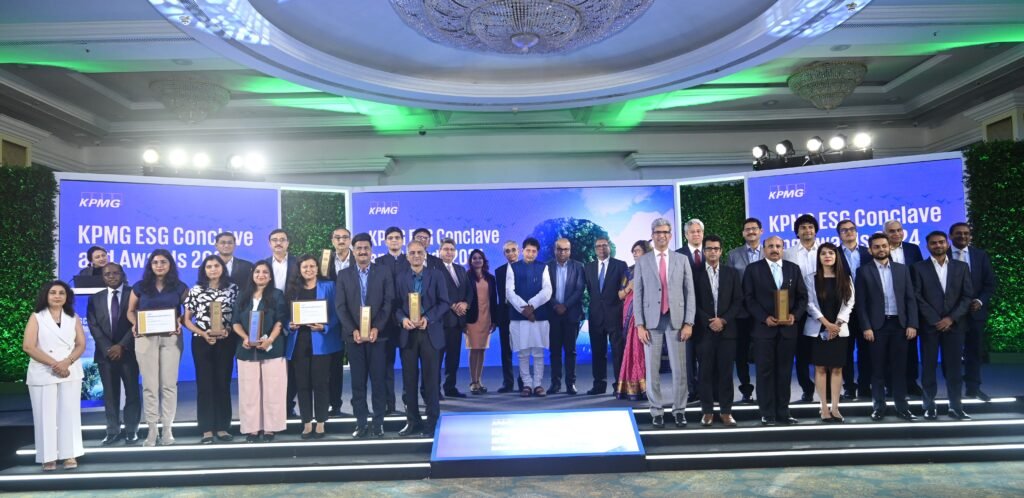 Mumbai, 30 August 2024: The second edition of KPMG in India’s ESG Conclave and Awards 2024 concluded on a high note with a full house turnout, that saw companies being honored for their leadership, innovation, and commitment to sustainable business practices. The event centered on the theme of Green and Inclusive Growth, highlighted that in today’s environment, companies must reflect upon their learnings, adapt to be flexible, and evolve proactively with a forward-looking mindset real time for a sustainable future.
Mumbai, 30 August 2024: The second edition of KPMG in India’s ESG Conclave and Awards 2024 concluded on a high note with a full house turnout, that saw companies being honored for their leadership, innovation, and commitment to sustainable business practices. The event centered on the theme of Green and Inclusive Growth, highlighted that in today’s environment, companies must reflect upon their learnings, adapt to be flexible, and evolve proactively with a forward-looking mindset real time for a sustainable future.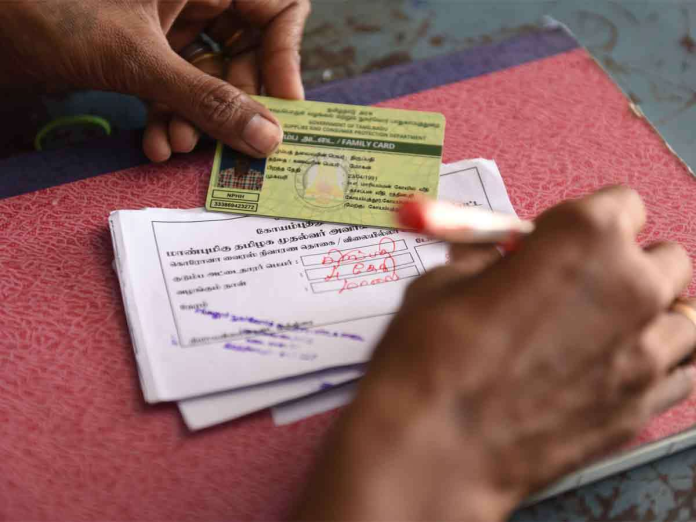
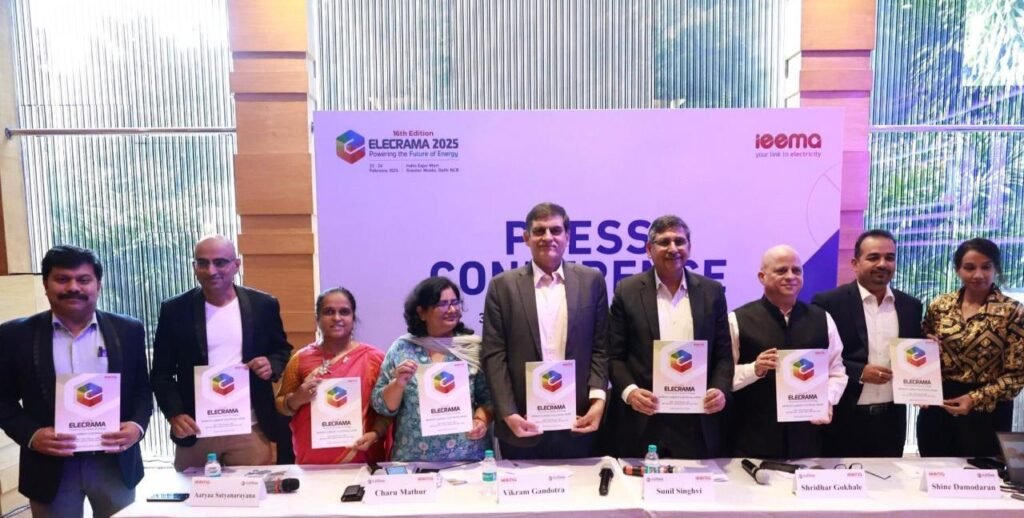 Bengaluru, August 30th, 2024: The Indian Electrical & Electronics Manufacturers’ Association (IEEMA), the apex association of the Indian electrical equipment manufacturing industry, hosted the southern region preview of ELECRAMA in Bengaluru today. With a projected attendance of over 1,100 exhibitors, 400,000 visitors, 15,000 B2B meetings, 600+ hosted buyers from 80 countries, and 10+ country pavilions, the 16th edition of ELECRAMA, the World’s Largest Electrical show promises to be bigger, better, and bolder than ever before.
Bengaluru, August 30th, 2024: The Indian Electrical & Electronics Manufacturers’ Association (IEEMA), the apex association of the Indian electrical equipment manufacturing industry, hosted the southern region preview of ELECRAMA in Bengaluru today. With a projected attendance of over 1,100 exhibitors, 400,000 visitors, 15,000 B2B meetings, 600+ hosted buyers from 80 countries, and 10+ country pavilions, the 16th edition of ELECRAMA, the World’s Largest Electrical show promises to be bigger, better, and bolder than ever before.


